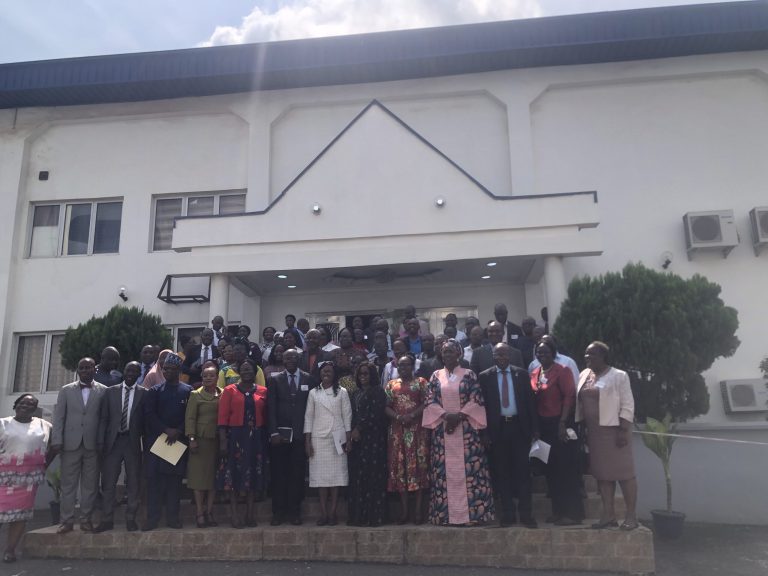In a bid to address malnutrition, the Oyo State Ministry of Health in collaboration with Accelerating Nutrition Results in Nigeria, ANRiN has held a 8-day Training on Maternal Infant, Child Nutrition for health workers in Ibadan, State Capital.
The 8-day capacity building which began on Monday 1st of July was organised for health workers from the federal, state and private hospitals in Oyo state.
Speaking at the event, The Oyo state Commissioner for Health, Dr Oluwaserimi Ajetunmobi appreciates World Bank for its sponsorship and facilitator of the initiative.
She noted that the World Bank’s commitment has been instrumental in driving the initiative forward, adding that its support underscores the critical importance of addressing maternal and child nutrition in the country.
Ajetunmobi stated that the initiative marks a significant milestone in the ongoing efforts to combat malnutrition underweight, severe acute malnutrition, and obesity and improve the health outcomes of our mothers, infants, and young children in Oyo State and Nigeria as a whole.
According to her Malnutrition remains a persistent challenge, affecting the health and development of children and the well-being of mothers.
While, she further said that the initiative is aimed at training pool of 2,200 Master Trainers across the 36 States and the FCT, who will, in turn, facilitate step-down training for secondary and primary health facility workers.
She said “It is with immense pleasure and a deep sense of responsibility that I stand before you today at the commencement of the State Level Training of Trainers (ToT) on the Maternal Infant and Young Child Nutrition (MIYCN) course.
“This initiative marks a significant milestone in our ongoing efforts to combat malnutrition underweight, severe acute malnutrition, obesity and improve the health outcomes of our mothers, infants, and young children in Oyo State and Nigeria as a whole.
“I will like to extend my heartfelt gratitude to the World Bank for its unwavering support and contribution to the Accelerating Nutrition Results in Nigeria (ANRiN) Project. The World Bank’s commitment has been instrumental in driving this initiative forward, and its support underscores the critical importance of addressing maternal and child nutrition in our country.
“The approval granted at the 64th National Council on Health (NCH) to institutionalize the MIYCN course across the 36 States and the FCT is a testament to the Federal Ministry of Health and Social Welfare’s unwavering commitment to tackling the triple burden of malnutrition in Nigeria.
“Malnutrition remains a persistent challenge, affecting the health and development of our children and the well-being of our mothers. It is disheartening to note that well over two-thirds of malnutrition-related deaths occur within the first year of life, often linked to inappropriate feeding practices.
ALSO READ: Bauchi records 50 suspected cholera cases in three LGAs
“The first 1000 days of life are critical for ensuring proper growth and development, and yet, many mothers and caregivers lack the necessary knowledge and resources to provide optimal nutrition.
“This is where the MIYCN training comes into play. By building the capacity of our health workers, we aim to empower them with the knowledge and skills needed to provide accurate and practical nutrition information to families.
“This training will ensure that frontline workers can support mothers and caregivers in adopting optimal feeding practices, thereby improving the nutritional status of our children and mothers”, she concluded.
Also speaking Director of Nutrition, Primary Healthcare Board and Project Coordinator, ARin, Dr Khadijat Alarape stated that the initiative was necessitated by the rise in the need to fight malnutrition.
She said the capacity building was held for healthcare service workers in a bid to train them on updates on maternal and infant and young child nutrition.
Alarape further explained that the initiative will help reduce the prevalence of malnutrition in the state and the country as a whole.
Alarape however noted that the initiative which is stepped into 5 different stages is targeted at addressing malnutrition at the first 1000 days of a child, which commences from when the child is conceived till he or she attains the age of two.
NIGERIAN TRIBUNE
